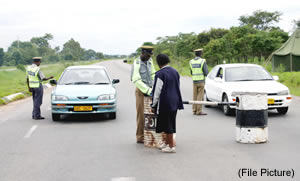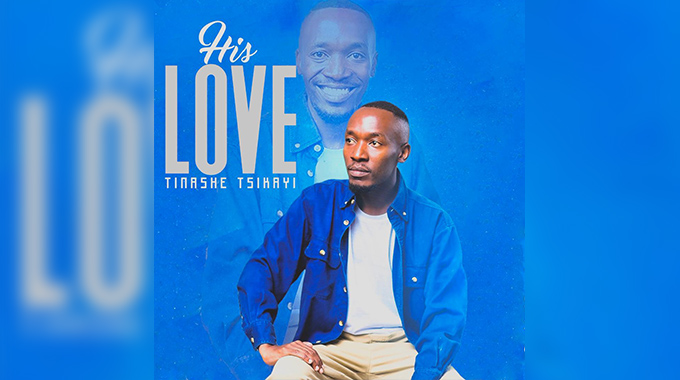Kombis double fares to pay police fines

mounted on the route as drivers say they need extra money for fines or bribes to police officers.
Police say roadworthy vehicles and those with proper do-cuments will not attract fines. They also point out that kombi drivers are notorious for their disregard of driving laws.
Bribes are not just illegal, say top police officers, but when reported will result in corrupt officers being arrested.
At suburban terminuses the increases have resulted in major rows between drivers, passengers and youth groups determined to enforce the R5 (US$0,50) fare.
Some operators were already charging double during peak hours, taking advantage of those wanting to pay more to jump queues, but now all do so intermittently at all other times.
Norton residents are now paying US$2, up from US$1 while operators serving Chitungwiza, Ruwa and the outer Harare suburbs of Kuwadzana, Dzivaresekwa, Mabvuku, and Tafara, plus other areas where police roadblocks are usually mounted on the route now try and charge US$1, up from US$0,50.
Drivers revert to the normal 50c when police lift the roadblocks.
In Kuwadzana Extension, some youths have been enga-ged in fistfights with operators forcing them to reduce the fares.
At Kuwadzana Extension’s main bus stop, popularly known as PamaCall Box, some youths were yesterday carrying banners inscribed “R5 paTown” in protest over the commuter fares.
Most kombis were forced to leave the terminus without passengers.
Kombi crews however, attributed the fare increases to the fines they pay at roadblocks, or bribes they sometimes pay in lieu of fines.
Most traffic offences that attract admission of guilt spot fines require a fine of US$20.
Most kombis carry a maximum of 18 passengers a trip, so even with a US$1 fare the crew are out of pocket.
But most crews say they negotiate bribes instead and keep US$5 and US$10 for bribes which they pay instead of the US$20 fines. Since this is illegal, they did not want to be named.
Traffic Police National Spokesperson Inspector Tigere Chigome urged operators to repair their vehicles and to comply with traffic laws to avoid brushes with the law.
Insp Chigome said compliance with the law was the best solution to all the problems raised.
“If commuter operators regularly take their vehicles for service and have all the requisite papers, there will be no room for corruption.
“Why do drivers pay bribes? It is an offence and as police, we have since declared zero tolerance on corruption. If any cases of corruption are reported, we swiftly react by sending our crack team to arrest the corrupt officers at any time.
“Most vehicles plying the cited routes are defective and we cannot sit back and watch posing a danger on our roads. The law obliges us to arrest,” he said.
Inspector Chigome said police would never be deterred from carrying out their duties on the roads.
“There is no going back on arresting traffic offenders. I do not think traffic officers would be very cunning to an extent of putting their hands into the operators’ pockets for a bribe.
“The people should play their part by refusing to pay bribes and to report such cases to us immediately,” he said.
Along Bulawayo Road, leading to Warren Park and Kuwadzana, traffic police motorbikes or vehicles normally park near the National Sports Stadium, at the Kuwadzana Roundabout and at a bridge near Kuwadzana Extension.
In Kuwadzana, at Kuwadzana 4, another roadblock is normally mounted by local police officers.
When going to Chitungwiza, police normally mount roadblocks at Caledon Shops, an area just before Chinhamo, St Mary’s Police Station, at Chikwanha Shopping Centre and at
l To Page 4
Kombis double fares to pay police fines
from Page 1
a turn-off near Makoni Shopping Centre.
Commuters in Mabvuku usually meet the police at Mabvuku Turn-Off and/or at Jaggers Msasa while Ruwa and Zimre Park travelers meet them again at Zimre Park Main Turn-Off.
Zimbabwe National Commuter Omnibus Operators Organisation chairman Mr Aaron Tapfuma said the operators had meetings with traffic police officers informing them of what their juniors do on the roads.
“We have engaged senior traffic officers informing them how their youngsters are soliciting bribes on the roads and they promised to monitor them.
“We urge our members to comply with the laws of the road and our drivers should not promote corruption by paying bribes.
“At times, due to lack of knowledge, our drivers are made to pay more as bribes than what is prescribed in the fines’ schedule.
“Drivers should also demand the fine schedules before they pay the money,” Mr Tapfuma said.
He said the cost of spares and maintenance were also contributing to the fare hikes, though they are illegal.
At the Kuwadzana Rank along Mbuya Nehanda Street the situation nearly turned violent yesterday as the drivers and conductors fumed over what they felt was unjust milking by the police.
“Police are taking a lot of money from us. It does not matter whether the papers are in order or not. They have to create an offence for us so that we leave some money,” one of the drivers said.
“When we charge US$0,50 we make US$9 every trip, but police take US$20 from us. At least if we charge US$1 per head, we realise US$18.
“If we leave US$10 at the roadblock we would remain with US$8. If we do not do that we will be forced out of the road,” another driver said.
Operators in February this year increased fares when police descended on them.
Commuter omnibuses were rounded up for such offences as driving defective vehicles, failing to comply with traffic laws and causing chaos in the CBD.
The drivers were also arrested for not going for re-tests.









Comments